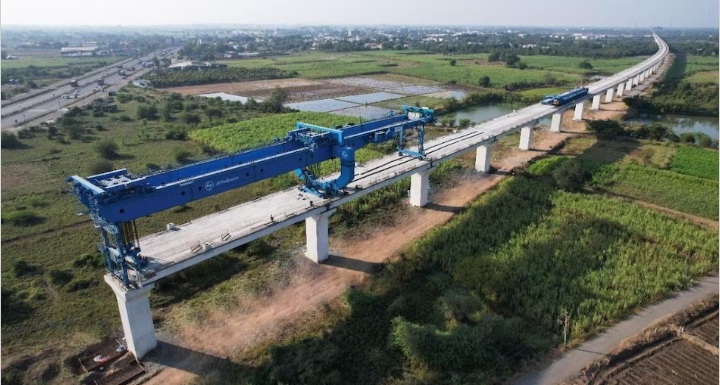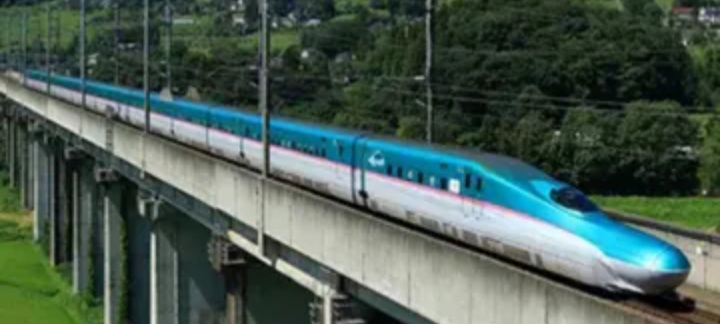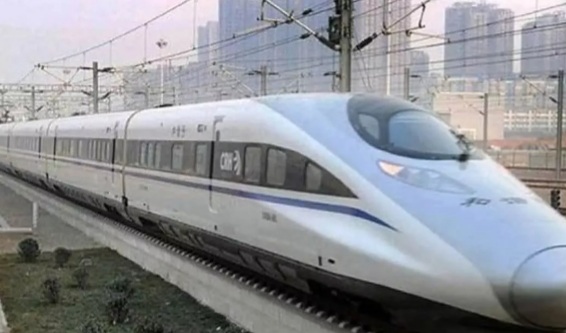NHSRCL’s revised tendering guidelines makes the Bullet Train project less competitive
By: Divya Thearia

28th January 2023 (New Delhi): According to reports here on Friday, the addition of new provisions to the C2 package of the Mumbai-Ahmedabad high-speed rail project’s tendering process does not appear to be sitting well with the big infrastructure players who are submitting bids for the renowned project. The implementation of the new criteria could limit competition in the bidding process, which would worry interested infrastructure businesses.

The new terms, according to several industry insiders we spoke with, are “arbitrary” and will drive up the project’s ultimate cost significantly over time. Since many huge corporations are in a bind as a result of the additional terms, they also highlighted the project’s deliverability problems.
Construction work for quick-track railroad projects has been leased out by the National High-Speed Rail Corporation Limited (NHSRCL). These are purportedly extremely valuable specialised jobs.
An insider in the sector claims that the NHSRCL has set forth certain new guidelines for the C2 package bidders to follow. When the C1 package was out for bid, these stipulations weren’t there. The bidders “should not have acquired any debt restructuring or should not have sought for any debt in the three years prior to the date of bid submission,” according to one of the stipulations.

This has now become one of the major issues concerning the industry, as most of these high-value infrastructure projects and companies do substantially operate on loans and debts, and hence this new clause is making a host of contractors uneasy, as we have learned from several industry sources. A legal expert who specialises in infrastructure poses the question: “Since when has taking a loan become illegal for running a business?” This clause in itself is counterintuitive. On one hand, it presumes that restructured entities should not be able to get a loan, and on the other, it prohibits a firm that has applied for a loan from participating in a tender. This is prohibitive and excessive. It also goes against the spirit of improving the ease of doing business that the current government is championing. A well-known finance arranger quipped, “Applying for loan is not the same as sanctioning loan, which is not the same as disbursement of loan, which is not the same as failure to repay a loan, which is not the same as defaulter on loan.” “Clearly, something is amiss here.”
The important thing to note is that the C1 package tendering procedure did not include this clause. This essentially permitted the party to bid on the same debt restructuring if they had already received one in the three years prior. To prevent the contractor from using the funds for other projects, the bidding party is obliged to form a special “Trust and Retention account” (T&R account) and submit a list of the vendors, suppliers, subcontractors, and other consultants to whom direct payments would be made by the bank. In the newly released norms, this has been removed.
The C1 package tender process is currently complete, and a joint venture bidder has been selected as the lowest bidder for providing a reasonable price. According to sources, the difference between the lowest and second-lowest bid is about 600 crores. Even existing contractors that have won distinct packages of the project are now ineligible for the tendering process due to the additional rules that make “Trust and Retention” accounts non-relevant.
In order to reduce competitiveness throughout the process, bidders who have already achieved or are in the process of obtaining debt restructuring shall not be able to participate in the bid.
Experts claim that this modification completely disqualifies many technically competent companies from taking part in the bid, particularly given the dearth of qualified enterprises in the Indian market that are able to compete for these high-value bids. As a result of the lack of healthy competition, NHSRCL will also suffer losses, and the government may find it difficult to carry out the project.
